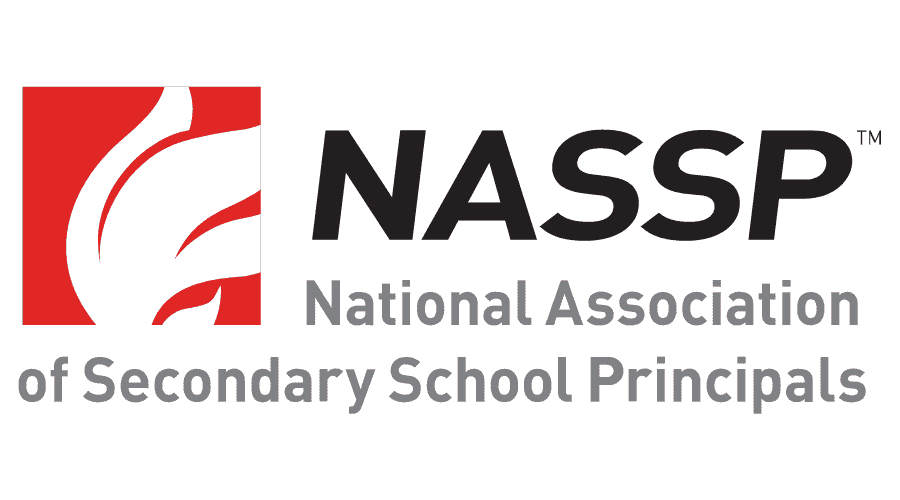30 Sep2021
By Michael Rose

Photo by Allison Shelley for EDUimages
This week, the House of Representatives passed the Consider Teachers Act, which would make certain improvements to the Teacher Education Assistance for College and Higher Education (TEACH) Grants program. The TEACH Grant program is intended to encourage individuals to enter the teaching profession by providing recipients with grants of up to $4,000 per year to pursue coursework that leads to a certification in teaching. AACTE has long supported this program to help address the nation’s shortage of educators.
30 Sep2021
By AACTE
AACTE and ATE State Leaders Discuss State Policy Trends and Advocacy for Educator Preparation
The American Association of Colleges for Teacher Education (AACTE) concludes its month-long Washington Week programming with the State Leaders Institute (SLI), September 30 through October 1. SLI brings together state chapter leaders from AACTE and the Association of Teacher Educators (ATE) to augment their impact on state level educator preparation policy issues and to advocate for promoting diversity, equity, and inclusion in education. This program affords leaders the opportunity to gain insight from each other, learn how other states organize their state-level conferences and outreach efforts, and identify key advocacy strategies together.
28 Sep2021
By Jane E. West and Kaitlyn Brennan
This blog post is written by AACTE consultant Jane West and is intended to provide updated information. The views expressed in this post do not necessarily reflect the views of AACTE.
 As you will recall, after returning last week from the August recess Members of Congress were off to the races to get four major pieces of legislation passed and ultimately to keep the government running. The big four are the bipartisan infrastructure bill, the reconciliation bill, a continuing resolution to avoid a government shutdown, and legislation to raise the debt ceiling to avoid the government from heading into default on its obligations. On Tuesday evening House Democrats took an initial step towards warding off a government shutdown, passing a short-term spending bill that would keep the government funded through early December and lift the limit on federal borrowing until after the midterm elections in 2022.
As you will recall, after returning last week from the August recess Members of Congress were off to the races to get four major pieces of legislation passed and ultimately to keep the government running. The big four are the bipartisan infrastructure bill, the reconciliation bill, a continuing resolution to avoid a government shutdown, and legislation to raise the debt ceiling to avoid the government from heading into default on its obligations. On Tuesday evening House Democrats took an initial step towards warding off a government shutdown, passing a short-term spending bill that would keep the government funded through early December and lift the limit on federal borrowing until after the midterm elections in 2022.
28 Sep2021
By Meghan Grenda
AACTE’s Member Spotlight features an individual from a member institution, highlighting how their work makes a difference in classrooms across the country. Nominate yourself or another member by providing a response to the following questions and sending to mgrenda@aacte.org
 Meet Kari Vogelgesang …
Meet Kari Vogelgesang …
Position/Institution: clinical associate professor and director, professional development at Iowa Center for School Mental Health, Baker Teacher Leader Center
College of Education, University of Iowa
-
-
- How long have you been a member of AACTE?
I’ve been a member with AACTE for 7 years.
- Why did you join AACTE?
The University of Iowa has had a membership for our teaching and learning faculty since I was hired … and maybe before I was hired?
- Why did you decide to enter the field of educator preparation?
When I was a practicing elementary school teacher and started working with student teachers, I knew that I wanted to move over to educator preparation. In addition, while completing my master’s program, I surprisingly fell in love with research—particularly research that focused on better understanding classroom practices that can lead to healthier outcomes for our students.
28 Sep2021
By Matthew J. Camp
This article originally appeared in Inside Higher Education and is reprinted with permission from the op-ed author. The views expressed in this post do not necessarily reflect the views of AACTE.
September 2 marked the anniversary of the National Defense Education Act, the law signed by President Dwight D. Eisenhower in 1958 to vastly expand funding for colleges and universities. The country has been the better for it ever since. Eisenhower famously warned about the military-industrial complex and how every dollar spent on a bomber could have been spent on a school.
Today, Americans realize the futility of spending $2 trillion over 20 years fighting a lost war in Afghanistan. What would the world look like if that money had been spent on education in that country and in ours? Now is the time for every college in the country to fight hard for the next massive investment in higher education. Quite simply, they should lobby for our future.
Unfortunately, higher education institutions have historically played defense when it comes to advocating for their own interests. For the past four years, colleges have spent lots of time and money responding to chaotic Trump-era proposals on immigration, free speech on campus, graduate student taxes, Title IX changes and restrictions on research. In most states, funding to higher education is much lower today than it was 20 years ago.
23 Sep2021
By Linda Minor

This year’s attendees of the AACTE Virtual Leadership Academy Series are committed to enhancing their leadership skills, especially during these difficult times. Here’s what a couple of your peers had to say about this year’s virtual Leadership Academy first session:
“I loved the meeting, even though I wished we could be there in person. I attended the academy several years ago in Pittsburgh and got so much out of it. I think that the presenters did an amazing job of engaging everyone in interactive polls and breakout rooms. Our discussions were right on target for what we need to get started in leadership this year with its many challenges. I appreciate the opportunity and I’m definitely looking forward to the next meeting.” – Sue Corbin, Ph.D., Notre Dame College
23 Sep2021
By TAMIU Office of Public Relations

James O’Meara, dean, College of Education
Texas A&M International University (TAMIU) has been selected as a lead institution representing Texas in the AACTE Consortium for Research-Based and Equitable Assessments (CREA), which will engage 14 states in a study of their state-level tests and qualifying scores for educator preparation program (EPP) entry.
The initiative is funded by the Bill and Melinda Gates Foundation, and its goal is to examine the processes and considerations that states use to determine cut scores, and how they can be refined to attract, rather than exclude, potential teacher candidates.
22 Sep2021
By Michael Rose
 One of the important coalitions AACTE is a member of is the Committee for Education Funding (CEF), which is the oldest and largest coalition of education associations and calls for an increase in federal funding for education. CEF’s current campaign is “5 Cents Makes Sense,” which calls for 5 cents of every federal dollar to be spent on education. The campaign’s official hashtag is #5Cents4EdFunding.
One of the important coalitions AACTE is a member of is the Committee for Education Funding (CEF), which is the oldest and largest coalition of education associations and calls for an increase in federal funding for education. CEF’s current campaign is “5 Cents Makes Sense,” which calls for 5 cents of every federal dollar to be spent on education. The campaign’s official hashtag is #5Cents4EdFunding.
Each year, CEF publishes a Budget Book, which analyzes the President’s budget proposal and its impact on federal education programs. AACTE contributed two articles to the Book. One is on TEACH Grants, the federal program that supports the recruitment of high-quality teacher candidates for hard-to-staff fields and schools. The other article is on the Teacher Quality Partnership program, which is the only federal initiative designed to strengthen and reform educator preparation at institutions of higher education.
22 Sep2021
By Regina Grossman
 The National Association for Secondary School Principals (NASSP) is calling on federal officials to provide support for school leaders being threatened and undermined by those who disagree with school guidelines on COVID-19 best practices.
The National Association for Secondary School Principals (NASSP) is calling on federal officials to provide support for school leaders being threatened and undermined by those who disagree with school guidelines on COVID-19 best practices.
While the pandemic has impacted every one—school leaders are bearing the brunt of conflicts over masks, quarantines, vaccines, and other highly charged issues. They have been faced with hostile community members, threats to their own safety or safety of the school, and with non-compliance with rules that are meant to keep us all safe.
Teresa M. Hill, Principal at Walden Grove High School in Arizona and NASSP member, tells of her experience with threats at her school: “One month ago, seven people refused to leave our campus demanding a quarantined student attend class. After a lockdown of the front office for three hours, we were forced to arrest three of them. This has resulted in multiple threatening and intimidating voice messages, emails, and social media comments directly targeting me. Calling me a Nazi, a fascist, using profanity, and being told to ‘eat the end of a shotgun’ is beyond disturbing. Two weeks later, three men threatened and intimidated an elementary principal in my area by demanding a citizen’s arrest while holding zip ties in their hands.”
22 Sep2021
By Shauna Torrington
This article is a personal reflection of the 2021Washington Week Holmes Policy Advanced Policy Course by attendee Shauna Torrington.
 My takeaways from my participation in the Holmes Advanced Policy Course have been threefold. This course has impacted me as an international student, an advocate, and as a practitioner.
My takeaways from my participation in the Holmes Advanced Policy Course have been threefold. This course has impacted me as an international student, an advocate, and as a practitioner.
As an international student, I have a greater understanding about the terminology that is normally used in policy advocacy. This new knowledge has enabled me to follow along with a clearer understanding during discussions on policy. The words representative, senator, and congressperson also now have greater meanings for me. I am aware of the basics of the legislative process and can better follow the process of how a bill becomes a law. I now know what it means to introduce a bill or to sponsor a bill. Additionally, I know what a “markup” means and what is the process that comes after a markup. I know where to look to find information on my senators and my representatives. I know how to contact their offices or to see what issues they voted for or against.
22 Sep2021
By Weade James
 The Consortium for Research-Based and Equitable Assessments (CREA) is seeking your help to recruit teacher candidates, teachers, and faculty for its upcoming focus groups. The Consortium, which is comprised of educator preparation programs (EPPs) and state and local education agency representatives across 14 states, is examining the processes and considerations that states use to determine cut scores for entrance (i.e., Praxis Core) and teacher licensure examinations.
The Consortium for Research-Based and Equitable Assessments (CREA) is seeking your help to recruit teacher candidates, teachers, and faculty for its upcoming focus groups. The Consortium, which is comprised of educator preparation programs (EPPs) and state and local education agency representatives across 14 states, is examining the processes and considerations that states use to determine cut scores for entrance (i.e., Praxis Core) and teacher licensure examinations.
Through data collection of key stakeholders, analysis of trends and policies, and shared learning, the Consortium will produce recommendations and guidelines to establish equitable criteria for setting qualifying scores and model state policies that promote equity and diversity in the profession.
21 Sep2021
By AACTE
AACTE begins its
virtual “Day on the Hill” today, September 21, through September 23, as part of
AACTE’s Washington Week activities. Themed “Your Voice Matters,” the virtual event enables AACTE members to make their collective voices heard with Members of Congress and their Staff. Prior to their virtual Hill visits, participants engage in orientation and advocacy training in preparation to call for education funding and policy changes focusing on diversity, equity, and inclusion in education and teacher preparation programs. Throughout the sessions, attendees will learn what context to consider when meeting with their legislators and explore the latest developments in Washington.
“AACTE’s leadership as an advocate for higher and K-12 education throughout our nation is powerful,” said Lynn M. Gangone, Ed.D., president and CEO, AACTE. “As our members come together as one voice during Washington Week, they remind our elected officials of the importance of education as the foundation of our democracy and ask our congresspeople to lend their unwavering support to our elementary, secondary, and post-secondary institutions, their educators, and their students.”
The Holmes Program Advanced Policy Short Course preceded Day on the Hill, including a ‘Capitol Hill Briefing’ with House Education and Labor Committee Staff and an interview with Congressman Mondaire Jones (NY-17). During the course, students learned strategies to elevate their research and amplify their voices to positively impact future policy for students of color and other marginalized groups.
Sessions at AACTE’s 2021 Day on the Hill include:
Tuesday, September 21, 2021
- Day on the Hill Opening Session
- The Big Picture: Current Policy & Political Landscape
- Legislative Priorities: Appropriations, the Higher Education Act, Reed/Adams Legislation, and Reconciliation
- What is Advocacy and Why is it Important?
- Using AACTE’s Legislative Priorities for an Effective Hill Meeting
Wednesday, September 22, 2021
- Capitol Hill Panel Discussion
- Education Deans Panel and Town Hall: Building Campus/Program Leadership for Advocacy
- Checking Your Own Politics at the Door: How to Talk with Policy Makers of Either Party and Effectively Tell Your Story
Thursday, September 23, 2021
- Day on the Hill – Virtual House and Senate Congressional Visits
AACTE’s Washington Week activities will conclude with the
State Leaders Institute held September 30 through October 1. For more information on AACTE Washington Week 2021, visit
aacte.org, and follow us on
Facebook and
Twitter using #AACTEWW21.
20 Sep2021
By Natalie Hewlett
This article originally appeared on UofLNews.com and is reprinted with permission.
 Lorita Rowlett, like so many students, wears a variety of hats: mother, teacher and student, to name a few.
Lorita Rowlett, like so many students, wears a variety of hats: mother, teacher and student, to name a few.
Rowlett is pursuing her doctoral degree in special education through the College of Education and Human Development and says it is the only path she could have imagined pursuing.
“After I graduated with my bachelor’s degree, I went right into teaching and taught in a self-contained classroom for eight years,” Rowlett said. “I switched to special education because I have a son who was diagnosed with autism, so it became my life. I wanted to help other moms like me.”
Initially inspired to improve the curriculum and instruction for students in her own classroom, Rowlett returned to UofL to receive her master’s degree in special education with a focus in autism studies.
20 Sep2021
By Linda Minor

Plan to attend the third Leadership Academy Series session under the theme, Reimaging the Future: A New Vision for Academic Leaders, on January 25, 2022.
Are you registered to attend AACTE’s Leadership Academy? Availability is limited, but there is still time to register and enjoy access to all recorded sessions and continue conversations with attendees via the AACTE Connect360 online community. You won’t want to miss what is coming up.
20 Sep2021
By Jane E. West and Kaitlyn Brennan
 This blog post is written by AACTE consultant Jane West and is intended to provide updated information. The views expressed in this post do not necessarily reflect the views of AACTE.
This blog post is written by AACTE consultant Jane West and is intended to provide updated information. The views expressed in this post do not necessarily reflect the views of AACTE.
Members of Congress are in a Race Against the Clock with Critical Deadlines Looming this Fall
Members of Congress are in a race against the clock to get four major pieces of legislation passed and ultimately to keep the government running. The big four are the bi-partisan infrastructure bill, the reconciliation bill, a continuing resolution to avoid a government shutdown, and legislation to raise the debt ceiling to avoid the government from heading into default on its obligations.
The first bill, the bi-partisan infrastructure bill, passed the Senate before the August recess. It is now up to the House to act. However, the bill’s progress is tied to the fate of the second bill—reconciliation (which is a Democrat only initiative)—which is described further below. House Speaker Nancy Pelosi (D-CA) promised Democrats that she will hold a vote on the Senate-passed bipartisan infrastructure bill by September 27. She also pledged to approve the partisan reconciliation bill—a $3.5 trillion plan for social programs (including education)—in conjunction with the bi-partisan infrastructure bill. By tying those two bills together she is hoping to keep her caucus on the same page, with both moderates and liberals supporting them both.



 As you will recall, after returning last week from the August recess Members of Congress were off to the races to get
As you will recall, after returning last week from the August recess Members of Congress were off to the races to get  Meet Kari Vogelgesang …
Meet Kari Vogelgesang …

 One of the important
One of the important  The National Association for Secondary School Principals (NASSP) is calling on federal officials to provide support for school leaders being threatened and undermined by those who disagree with school guidelines on COVID-19 best practices.
The National Association for Secondary School Principals (NASSP) is calling on federal officials to provide support for school leaders being threatened and undermined by those who disagree with school guidelines on COVID-19 best practices. My takeaways from my participation in the Holmes Advanced Policy Course have been threefold. This course has impacted me as an international student, an advocate, and as a practitioner.
My takeaways from my participation in the Holmes Advanced Policy Course have been threefold. This course has impacted me as an international student, an advocate, and as a practitioner. The
The  Lorita Rowlett, like so many students, wears a variety of hats: mother, teacher and student, to name a few.
Lorita Rowlett, like so many students, wears a variety of hats: mother, teacher and student, to name a few.
 This blog post is written by AACTE consultant Jane West and is intended to provide updated information. The views expressed in this post do not necessarily reflect the views of AACTE.
This blog post is written by AACTE consultant Jane West and is intended to provide updated information. The views expressed in this post do not necessarily reflect the views of AACTE.